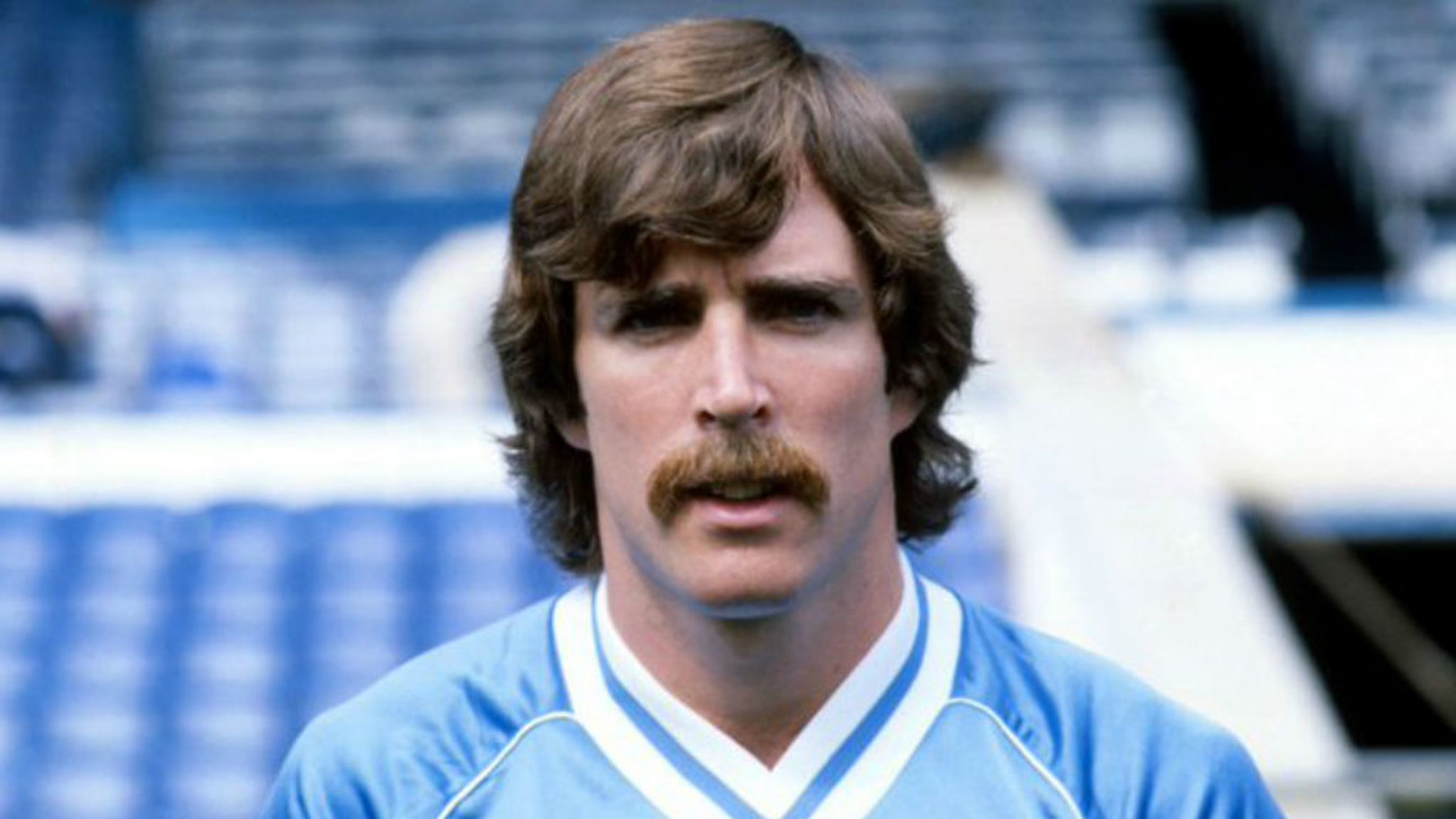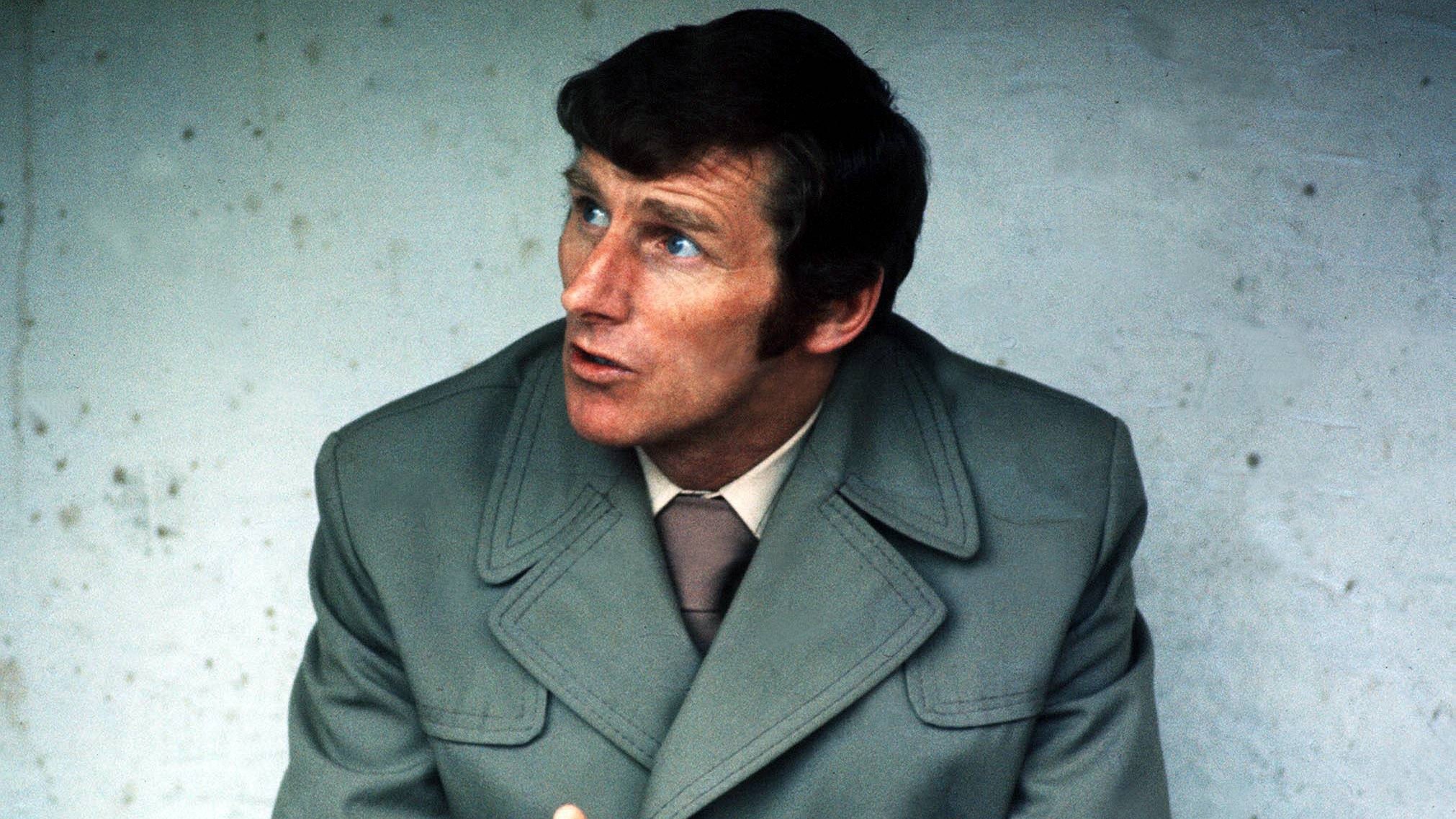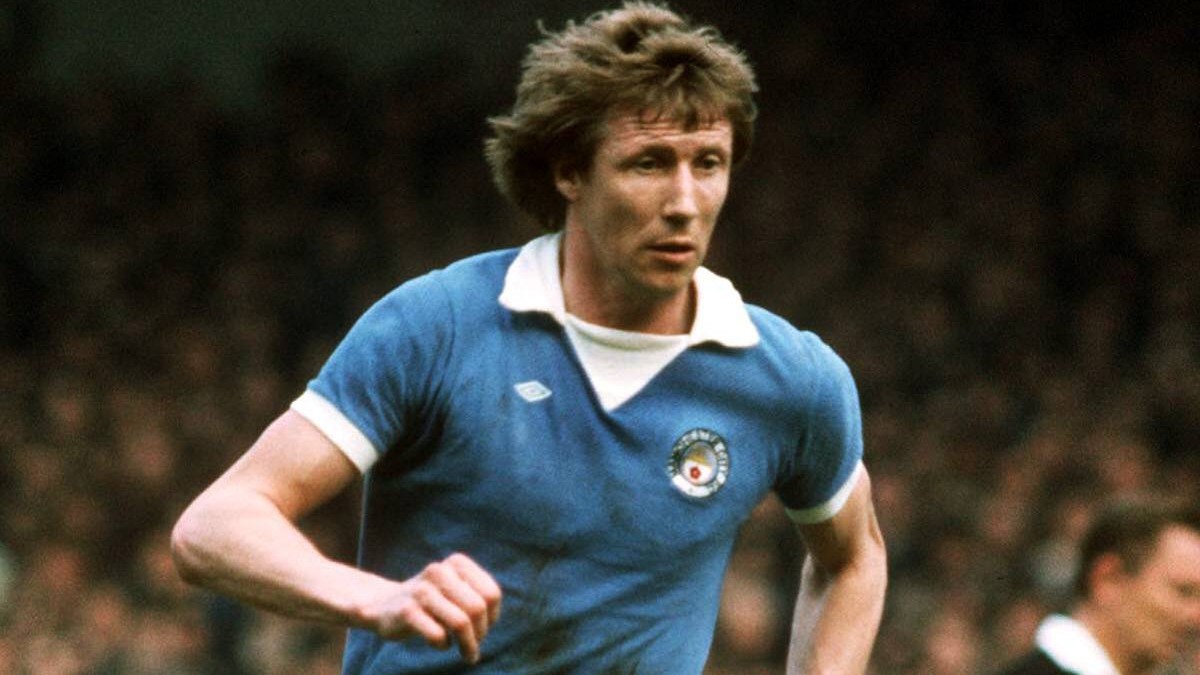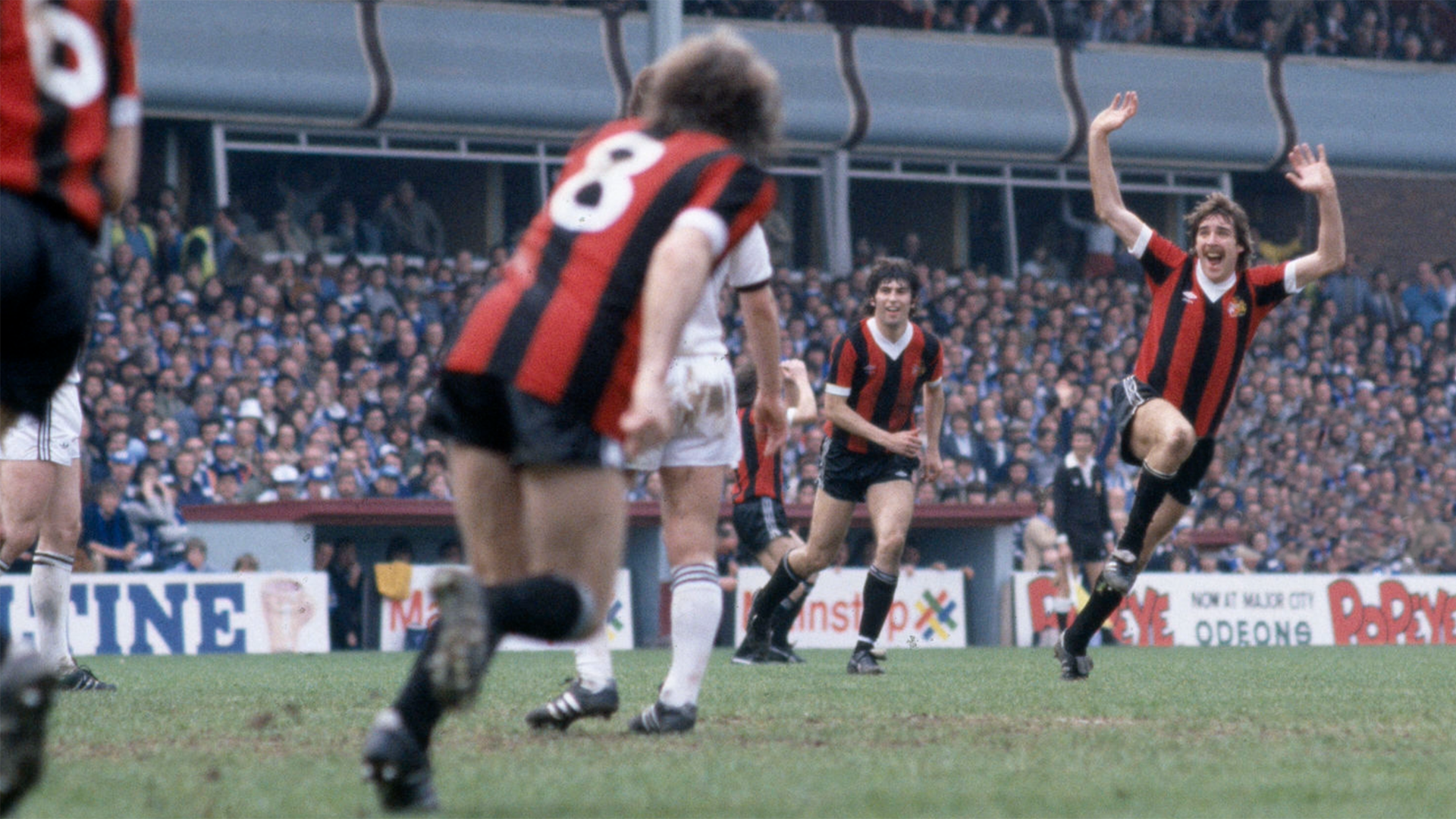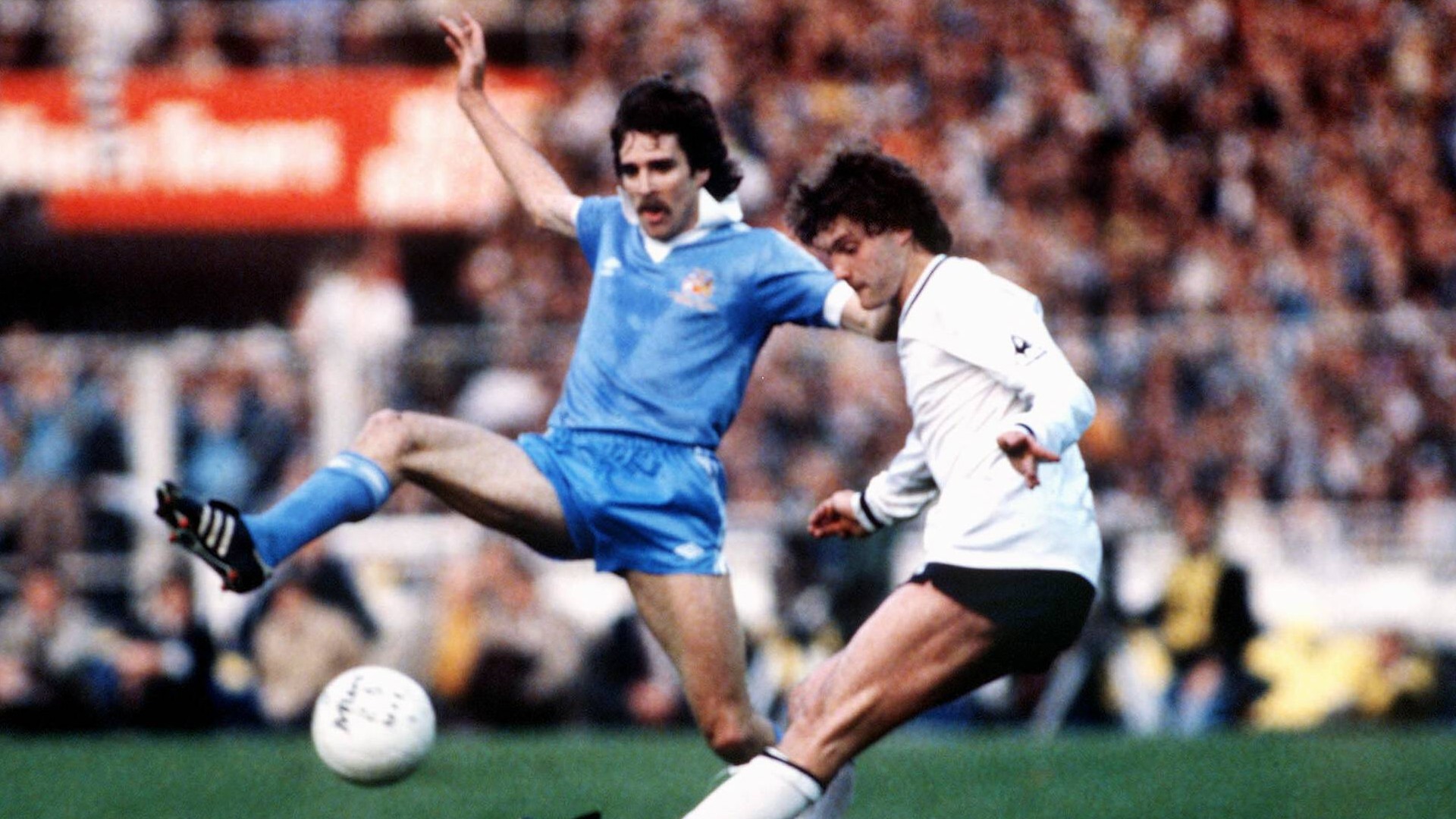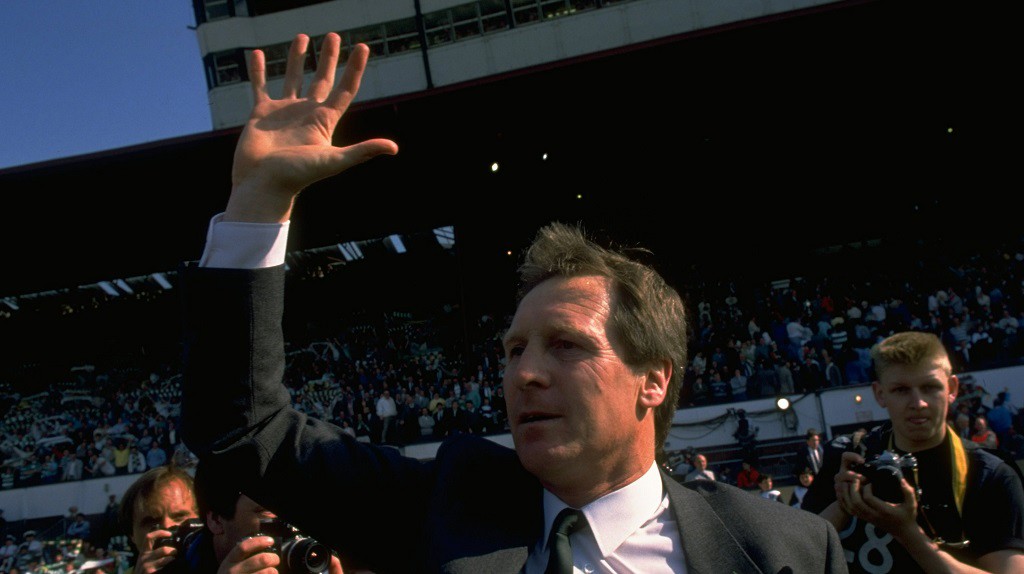On the day the former City captain – and subsequent Academy coach – celebrates his 70th birthday, Paul looked back reflect on the highs and the lows that marked his memorable 12 years as a player with his boyhood idols.
From the ultimate honour of leading City out at Wembley as captain on three occasions and scoring one of the great FA Cup semi-final winners, to the shattering blow of relegation and myriad managerial upheavals, Paul saw it all in a helter-skelter period that rarely saw the Club out of the headlines.
After a glorious tail-end to his playing career that saw him help Everton lift the old Division One title, Power subsequently returned to City as an Academy coach working under Jim Cassell.
Now happily retired and living in France, Paul still looks to attend matches when back in Manchester and his family connection with City continues today with son Nick part of the highly respected Academy set-up where he works as Head of Phase Operations.
He’s a true Blue blood in every sense of the phrase and says that his devotion to the Club was bonded from the outset of his earliest days..
“For me, to be signed as a City player was literally a dream come true,” Paul reflects today.
“I’d been brought up as a City supporter. My mum and dad hail from Openshaw which is walking distance now from the Etihad Stadium. And East Manchester was always a big blue area – going right back to the Hyde days.
“I was actually born in my Mum’s mum’s house in Openshaw, then when I was very young we moved into a council house in Wythenshawe in Woodhouse Park.
“I went to school at St Anthony’s Primary School, and there were more United fans than City fans by a country mile. That was a big red area, but it might have contributed to my ability as a footballer.
“When we played in the playground, it was City fans against United fans and there weren’t many of us back then! So, when you got the ball, you had to keep it for as long as otherwise you could as you wouldn’t see it again for a while!
“Every Christmas morning, the only present I got was a Manchester City shirt or a football. I would be straight away outside on the little patch of green outside our house playing with the ball.
“Growing up, my favourite player was Neil Young. He was such an elegant left winger, scored wonderful goals, and was a great striker of the ball. And, of course, I remember his winning goal in the 1969 FA Cup final.
“Later on, when I was back at City and coaching with the Academy, we set up satellite centres and Neil actually came and coached for us in Didsbury. It was great to strike up a working relationship with him despite never having played with him.”
Having gravitated to playing for a junior side called West Park Albion, the young Power soon came to the attention of City on a day when the side played in Langley opposite the house of legendary former Chief Scout Harry Godwin who snapped him up on schoolboy forms.
But with the junior Power’s growth delayed during his mid-teens, he found himself struggling for game team and drifted away from the Club before coming to City’s attention once again when playing for Manchester Boys’ Under-17s.
“Harry Godwin was at one game and saw I had grown pretty substantially by the time I was 17, so he invited me back to play for the A team,” Paul continues.
“I then combined that with studying for my law degree at Leeds University. Every Friday I would come back from Leeds to Manchester, City would pay my expenses to come back on the train, then play on the Saturday for the reserves or A team, and it developed on from there.”
Having signed for the Club in the early 1970s, Power’s talent, natural athleticism and footballing intelligence soon saw him mark his senior mark.
After making his City first team debut in 1975, Paul’s breakthrough campaign came during the 1975/76 season under the stewardship of Tony Book.
“That season was definitely a big one for me as we got to the League Cup final. I had signed in 1974 and I’d had a few games in the reserves,” Paul recalls.
“Glyn Pardoe was coming back from that horrendous broken leg he had suffered, so he used to play in the reserves at left back and I think he might have had a word with Tony Book and said: ‘Hey, this lad who plays in front of me isn’t bad, it might be worth giving him a contract and having a look at him’.
“I think Glyn was one of my big supporters.”
Power figured 24 times - and started 18 of those - that season, featuring in the semi-final win over Middlesbrough only for a knee injury to deprive him the opportunity of featuring in that memorable 1976 League Cup final that saw City record a 2-1 Wembley win over Newcastle made famous by Dennis Tueart’s spectacular overhead kick.
That League Cup final triumph was the highlight of an iconic City team illuminated by a beguiling blend of experience and youth, personified by the likes of Power and Peter Barnes.
Reflecting back Paul says it was a privilege to spend the early years of his City career as part of such a vibrant squad.
The following season – 1976/77 – City were runners-up in the old Division One table, finishing just a point behind champions Liverpool.
And Paul adamantly believes that only the absence of the late, great Colin Bell, whose career was effectively cut short by a serious knee injury in December 1975, stopped City claiming the league crown that season.
“I definitely do think that. Colin was a scorer of goals as well as a provider of goals. He fit really well into that crucial box-to-box midfield role,” Paul asserts today.
“It’s a bit like Kevin De Bruyne now and the effect he has on City when he plays. You do miss players of that ability when they are injured.
“We did well to finish runners-up in the league, and of course we had won the League Cup final as well.
“They were really good days. There was a mixture of top experienced players in the team like Joe Corrigan, Tommy Booth, Alan Oakes, Glyn Pardoe, Dennis Tueart, Dave Watson and then there were younger players like myself, Ged Keegan and Peter Barnes, so it was a nice mixture of youth and experience really.
“It was a great squad to be a part of.”
However, City’s upward trajectory however was to prove transitory – which became the underlying theme of Power’s Maine Road career.
The return of Malcolm Allison as manager in succession to Book in the autumn of 1979 was to be the prelude to a period of turmoil on and off the pitch.
The Midas touch that had accompanied Big Mal when he worked alongside Joe Mercer during the golden period of the late 1960s and early 70s was conspicuous by its absence second time around as City’s fortunes floundered with a succession of players coming and going.
Power was one of those who lived and played through that tumultuous period. And he is no doubt as the factors that conspired to derail Allison’s second spell at the Maine Road helm.
“I think during Malcolm’s first spell at City he helped bring in Tony Book from non-league, Colin Bell from Bury, and he took players from relative oblivion to become fantastic players for City.
“I think the second time Malcolm came, he thought he could do it again, but unfortunately that didn’t work out. So we struggled.
“I think there were too many new players brought in and too many good players sold at the same time.
“Mal gave me the captaincy too when he probably shouldn’t have because there were more experienced players at the club than me though obviously it was such a great honour for me captaining the team I had supported all my life.
“Malcolm made some mistakes, and the changes all came at one time, and we weren’t able to cope with it at the time.”
Within a year with City suck at the bottom of the table, Allison had departed to be replaced by John Bond, a flamboyant figure off the field but a wily, well-seasoned operator in the dugout.
Aided by some smart recruitment – not least the arrival of seasoned trio Gerry Gow, Bobby McDonald and Tommy Hutchison – City gradually turned the corner, reaching the 1981 League Cup semi-final.
With Power a central figure, we went one better in the FA Cup, going on to beat a formidable, title-chasing Ipswich side 1-0 in a classic 1981 semi-final clash at Villa Park, with Power’s spectacular 25-yard extra time strike firing the Blues to a first FA Cup final appearance in 12 years.
“We obviously practiced those situations,” Paul recalls today. “Normally, Steve McKenzie would knock the ball to me and then a man would come off the end of the wall to close the ball down, then I’d knock it on one more.
“He knocked it to me and nobody came off the wall. I remember my former City team mate Brian Kidd always used to say if you don’t buy a raffle ticket, you won’t win a prize. That was his big saying.
“That saying came into my mind and I thought ‘Let’s have a go.’
“All the City fans were there behind the goal in the Holte End at Villa Park and I just remember all their arms going up when the ball went in. It was a fantastic moment.
“When we were on the coach back on the journey home to Manchester, so many City cars were overtaking the coach on the M6, and all these flags were hanging from the windows. It was a fantastic night. Just brilliant.”
Power’s thunderbolt sent City through to the 1981 FA Cup final with Spurs – a showpiece occasion made all the more memorable by the fact it was the centenary Cup final.
“Leading the City team out at Wembley was such a special moment,” Paul says today.
“I’d never met a member of the Royal Family before, and the Queen Mother was introduced to the teams, and it was my job as captain to take her down the line.
“Because she was an old delicate lady at the time, I gently put my arm around her to sort of guide her down the line of players. Then at the end of it I got a bright rollicking for doing that as apparently if you put your arm around a member of the Royal Family in the medieval times, you’d get a dagger in you! That was funny.”
Tommy Hutchison had given City the lead with a quite brilliant diving header, but he was then unlucky to deflect Glenn Hoddle’s indirect free-kick past Joe Corrigan near the end of the match. as the game ended 1-1 after extra time and so forced a replay five days later.
The two sides served up another Wembley classic, with City powering into a 2-1 lead – with McKenzie firing home a wondrous goal – before Spurs staged a dramatic second-half fightback capped by Ricky Villa’s iconic individual strike to win 3-2.
“We were obviously devasted to lose the replay and I do think fatigue took its toll,” is Paul’s verdict today.
“We definitely deserved to win the game on the Saturday.”
More managerial change was then to follow as Bond departed in the spring of 1983 to be replaced initially on a short-term basis by his assistant John Benson and more latterly by Scotland and Celtic legend Billy McNeill who skippered the Glasgow club to the 1967 European Cup glory.
Power was to subsequently experience two opposing spectrums of football’s fickle finger of fate under the pair just two years apart – a shattering 1-0 Maine Road defeat to Luton on the final day of the 1982/83 season meant the Hatters survived and sent City down instead.
Almost two years to the day later however, Power and City would roar back to the topflight thanks to a dazzling 5-1 Maine Road triumph over Charlton Athletic.
“That Luton game was definitely the lowest moment in my City career without a doubt,” Paul admits.
“Having beaten Brighton away in our penultimate game all we had to do then was draw with to stay up.
“Unfortunately, we couldn’t create chances that day. That said, we weren’t looking like we would concede goals either. One point would have been enough.
“But as the game went on I could feel it on the pitch that the players were getting a bit nervy. We couldn’t hold the ball up front. We weren’t able to keep the ball and mount sufficient pressure around their 18-yard box. And they grew confident that they could nick it.
“Even the goal, it was a deflected shot and I’m convinced Alex Williams would have saved the shot if it didn’t go off Kevin Bond. It was deflected past Alex. Had it not touched our defender, I’m sure he would have saved it.”
However, the despair of relegation was transformed into the delight of promotion the summer of 85 as McNeill’s rejuvenated City walloped Charlton 5-1 to seal the deal.
Almost 50,000 fans crammed into Maine Road to roar City back to where we belonged on a glorious afternoon that is still indelibly etched in Power’s mind.
“What a difference between two games, where the outcome was so important,” Paul says today.
“The Luton game was a negative outcome. It was fighting against relegation. The Charlton one was a positive outcome, as it meant we could get back into the first division.
“The way we started was with a really positive mindset.
“We got off to a great start, I think we went 2-0 up after about 15 minutes. Everyone was a lot more relaxed. It was a totally different scenario to the Luton game.
“After that great early start, we ended up winning the game by five, the sun was out, there was a packed crowd… it was amazing.
“The supporters on that day were patting us on the back and lifting us up in the air. It was a really, really special day.”
That said, life under McNeill was another eye opener for Power.
Known as Caesar during his playing days, the Scot enforced a no nonsense culture at Maine Road and was never one to mince his words.
And City and Power were to sample another memorable day at Wembley in the 1986 Full Members Cup finals where we lost out 5-4 to Chelsea, that 85/86 campaign was to prove his last at City after more than a decade’s loyal service.
“Billy was what you might call a typical Scottish manager,” Paul recalls.
“He ruled the dressing room. I always found it difficult working as captain under Billy McNeill. He ended up taking the captaincy off me and gave it to Mick McCarthy.
“He was a leader on the pitch and a leader of the defenders, that was just the way he was built, and that was the manager’s decision and I accepted it.
“In the end I ended up going to Everton in the meantime.”
It was to prove a glorious end chapter to a career in which Power had seen so much.
Under the leadership of Howard Kendall, Everton had become the pre-eminent force in English football.
And Power – originally signed to help provide back-up to Kendall’s squad - was to subsequently prove a pivotal figure as the Toffees went to claim a second league title in three years.
“I was 33 and it was a good move for me at the time.” Paul adds.
“Everton had a problem with their regular left back Pat van den Hauwe, who had a serious ankle injury. So, I was expecting just to fill in until he was fit. Then I’d be sort of be on the bench as a member of the squad.
“I was very lucky because there were great players in that team at Everton. I was part of a back four which was all internationals. Then in front of me was Peter Reid and Paul Bracewell, all I had to do was get the ball and give it to one of them.
“Although, I’m sort of underplaying my part there, I ended up winning the Player of the Year award at Everton, which I also won Player of the Year twice at City too.
“Looking back on my time at City, I would say they were the yo-yo years. There were good times and bad times. The good times were great, and the bad times were not so great!
“I had a yoyo career at City but they are all incredible memories.
“I’ll never get tired of speaking about City. I never get tired of watching them these days.
“They play some great football and they’ve got great individual players, but they’ve still got a work ethic in the team that you need in any team.”

